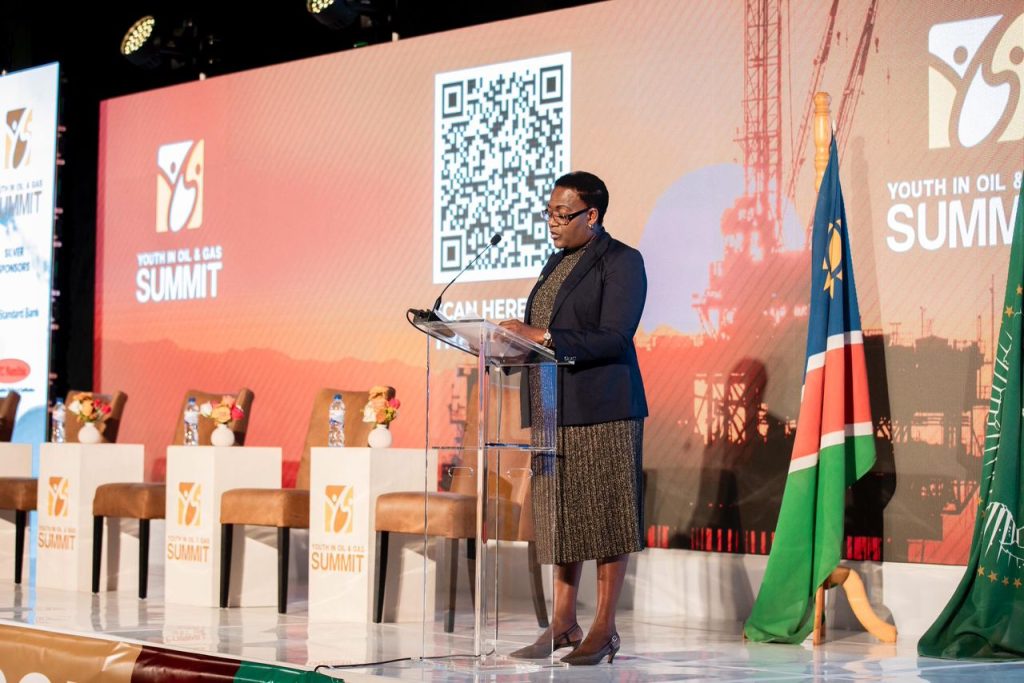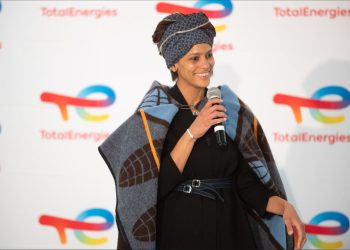
Namibia is aiming to raise local content and carried participation in the oil and gas sector from 10 percent to 15 percent by 2030, as the country prepares to leverage its petroleum discoveries for national development.
This was announced by Kornelia Shilunga, Special Advisor and Head of the Upstream Petroleum Unit, during her address at the 2nd Youth in Oil and Gas Summit.
“Under NDP6, Namibia seeks to produce 150 million barrels of oil equivalent, push gas production to 130 million standard cubic feet per day and create 22 800 jobs by 2030. Furthermore, a target of 15 percent has been set for local content and carried participation in oil and gas from the current 10 percent,” Shilunga said.
She noted that with an estimated 11 billion barrels of oil and 2.2 trillion cubic feet of natural gas, Namibia is emerging as a significant energy player.
“Namibia achieved a significant milestone in 2022 with its first oil discoveries in the Orange Basin,” she said. “By 2024, a total of 28 offshore oil and gas exploration wells and 15 appraisal wells had been drilled, alongside 10 exploratory wells onshore.”
Shilunga said this growth required urgent policy updates to meet the demands of the sector.
“The discovery of oil and gas in Namibia necessitates a quick shift on how to plan and drive our economy forward,” she said. “The current laws governing the oil and gas sector are relatively outdated and were formulated when the prospects and potential of the oil and gas were generally uncertain.”
To address this, she said the 8th Administration had begun preparatory work for the development of a Namibia Oil and Gas Logistics and Supply Base and that key structural changes had been made. “The Upstream Petroleum Unit has been placed within the Office of the President. And with key appointments concluded, our work begins now.”
She added, “The Upstream Petroleum Unit is in the process of reviewing existing regulatory framework to propose policies for the governance of the petroleum industry and the effective and efficient management of the upstream petroleum sector.”
Emphasising the importance of youth involvement, Shilunga said, “We are here to ensure that your talents, ambitions and voices are fully integrated into this transformative sector.”
She called on stakeholders to work together to build local capacity. “I challenge industry players to invest in capacity building. I challenge the academia to align curricula with current and future energy needs. I challenge we, the government, to accelerate youth-focused reforms and policies.”
Shilunga urged young Namibians to take an active role in the country’s energy future. “I also challenge you, our youth, to proactively seek knowledge, ask questions and to build networks.”
She said that integrity and inclusion must guide the sector’s development. “This oil and gas revolution must be powered by integrity, led with courage and anchored in inclusion. The youth are not only the future of this industry – but they are also its present momentum.”
Shilunga concluded by reaffirming the government’s commitment to a youth-driven and inclusive energy transition.
“The Presidency remains committed to building a petroleum sector that is not only productive, but inclusive. Let this summit be the moment where you take the tools, the networks and the available opportunities to drill boldly into the future.”







